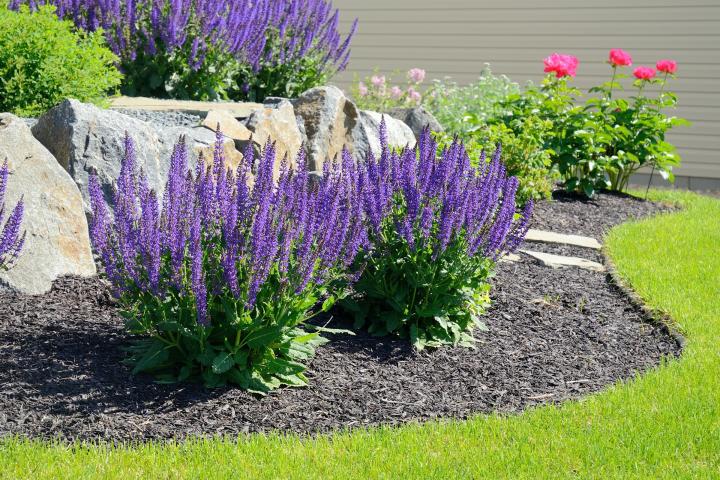Mulch is an important ingredient of your garden used to keep your soil and thus, plants safe and healthy. It can be an organic or inorganic type of material used to cover the soil close to your plants. It helps in improving the binding power of the soil, thus ensuring water level is maintained in the soil and minerals, which help plants to grow, are not lost with the rain. It has also proven to be effective in keeping the weeds away. If you have created a greenhouse kind of environment with the right mulch, you can create the right atmosphere in terms of sunlight and suitable temperature for plants to grow.

Types of Mulch:
#1. Organic Mulch: All mulch, which is sourced from organic materials like leaves, stems, wood, and even newspapers, can act as great binders for soil. You need to choose the right type of mulch for the right type of plantation. If you are looking after a vegetable garden, then you need to use pea straw. This will in fuse much-needed nitrogen in the plant by using urea.
Besides, you can use dead stems from plants like pine for bush-type plants and small tree structure. You may want to use grass saplings to create your first love of green grass bed.
#2. Inorganic Mulch: Products like sand, pebbles flatten rocks can be used as mulch and work great in both beautification and utility areas. They don’t act as enablers in the growth of plants through their decomposition but act as a protector for plants by saving the moistness of soil, ensuring heat is not escaped easily, and help in the overall growth of plants. They are a great choice for pot plants. They come in many colours and provide a great tone to your garden.
#3. Living Mulch: They are the type of plants, which don’t grow much and thus stay close to the ground. They are great soil binders and help in insulation of soil surface and don’t allow weed to grow. Winter rye and ryegrasses are great examples of living mulch.
Pros and Cons of Mulching
- Water Holding: Mulch helps in holding water inside the soil, so it reaches to plants.
- Temperature Control: Mulch helps in conditioning the soil temperature in both winter as well as summertime, thus saving the plants.
- Erosion Proof: Mulch acts as great soil binders thus preventing soil erosion.
- Weed Management: Weeds are bound to grow; mulch will help in this area aggressively by ensuring they don’t grow as quickly as they do.
- Conditioning of Soil: You need air to pass through the soil via worms and microbes, adding required minerals and adding humus into the soil by decomposition of leaves.
- Beautification of the Garden: Mulch adds to the beauty of the garden, adding a new dimension to the appearance of the place by adding a new texture.
There are Certain Areas That You Need to Remember Before Mulching Else It Will Lead to Despair:
- Your mulch material shouldn’t include fine grade else; it might become water repellent. For the ground cover, you can have 5% fine material and no more.
- If you are using mulch, then you might want to use wetting agents to overcome the wax-like effect coming out of organic mulch.
- You need to avoid pebbles mulch for leafy trees area as fallen leaves can leave your garden messy as its touch to clean the space with pebbles.
Considering both sides of the coin you should decide that you need mulch or not. In case you are unsure, you can connect with a gardener or garden management companies who will suggest you the right way of mulching.
